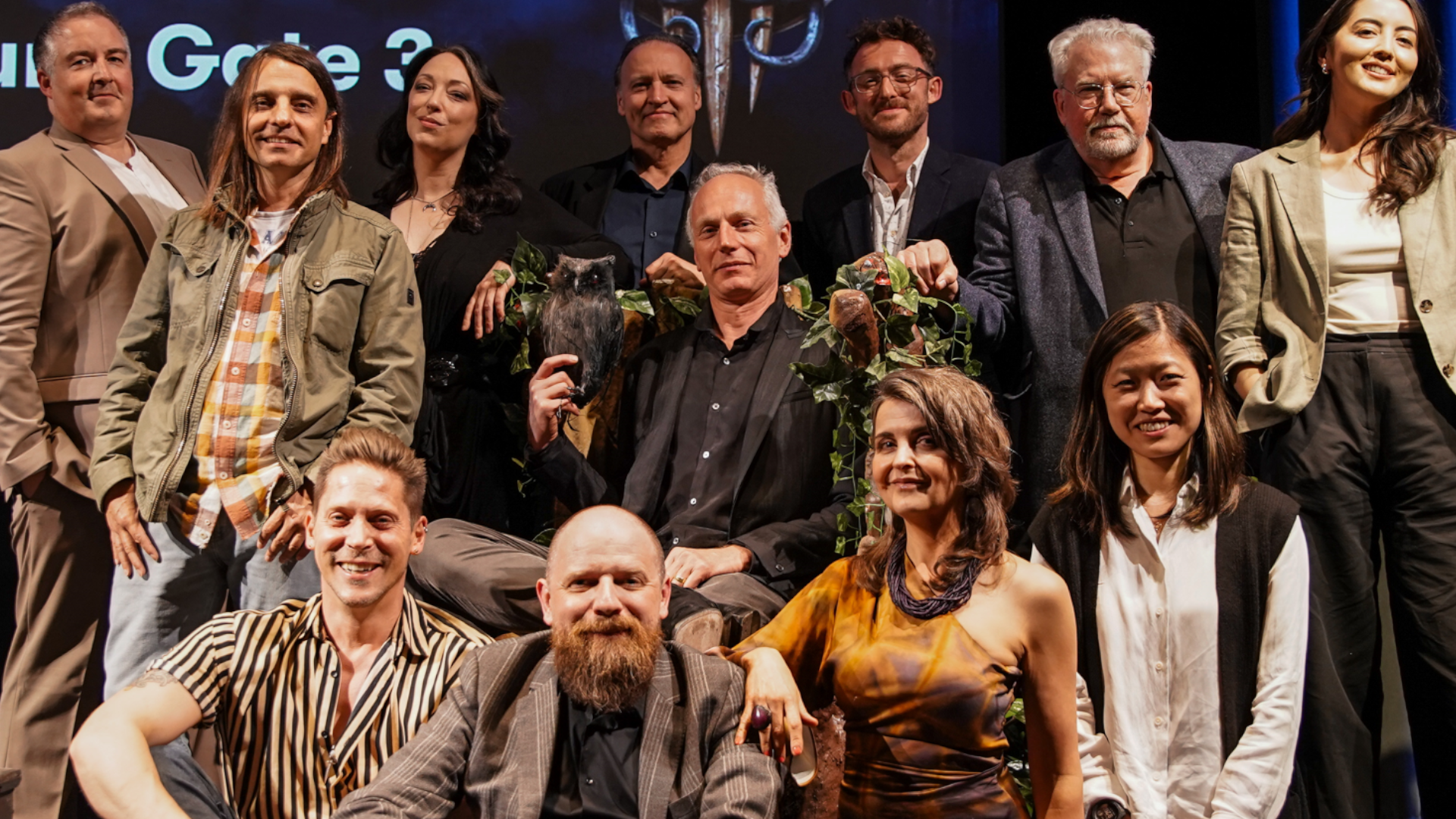'Work with the players ... otherwise you shouldn't be doing it': Heads at Baldur's Gate 3 developer Larian Studios say you ought to 'really mean it' going into early access
"You've sold someone a game, they paid for the game, so you do need to maintain it."

Baldur's Gate 3 had a long early access period—opening its doors in October 2020 before finally dropping in August 2023, almost three years (1,031 days, to be exact) later. It was a vastly different game to what it is now. For instance, I remember my inner D&D rules lawyer being very upset that firebolt made a damaging surface—that misstep, as well as a few others, were corrected for the better, producing what I'll happily call one of the strongest RPGs we'll see this decade.
The success of those fixes stem from Larian's approach to early access, which is rooted strongly in player feedback, adjustment, and constant maintenance. While attending BAFTA's "An Evening with Baldur's Gate 3", Larian Studios co-founder and CEO Swen Vincke, writing director Adam Smith, and lead writer Chrystal Ding were asked by interviewer Jane Douglas whether they believed in early access as the future of game development.
"I don't think [early access] is the future of, because you never know what the future will bring," Vincke answers. "For us, it's been really good—I heartily recommend it, but you really have to mean it when you go in there. You have to work with the players on making your game better, otherwise you shouldn't be doing it."
What it feels like Vincke is warning against, here, is releasing an early access build as a preview you leave in the dust or, heaven forbid, an elaborate marketing scheme based purely on FOMO: "You need to take time for it … if you're only in early access for a month or so, that's fine too, but then it's probably just to test some technical things and you have to be open about that."
When asked about whether he'd recommend a similar three-year lifespan, Sven takes a moment, sighs heavily, and laughs: "My team is watching. No, it's long—it's actually quite long. I think the playerbase gets tired, also, I mean, we got tired in early access." Still, he maintains, it's important not to release or add to an early access game with features that are in a broken state—which is something Smith agrees with.
"You've sold someone a game," Smith says. "They paid for a game. So you need to maintain it and you owe them that—you can't just say, okay, that early access branch is now over there and we're over here and it's neglected. You can't do that. So that's a lot of effort, it's difficult."
The early access period of Baldur's Gate 3 certainly didn't drag its feet when it came to updates—over the course of three years it received nine major patches, adding new classes, spells, companion characters, and story beats. I know some players who sunk hundreds of hours into just mucking around Act 1 alone. I can't relate (I dropped off after around 30 to wait for the full release, so I didn't over-indulge) but it's still mightily impressive that Larian tended to the game's early access like a proper release while also developing, well, the other two thirds of it.
The biggest gaming news, reviews and hardware deals
Keep up to date with the most important stories and the best deals, as picked by the PC Gamer team.
That commitment is something Vincke stands by as being vital to the whole operation: "You really shouldn't approach it with the attitude of 'oh it's just early access'. There's players playing this that care, so you should treat them with respect."
We can probably expect whatever Vincke & Co are cooking next to have a similarly tended-to early access period, though I'll rather selfishly hope it isn't nearly as long. You'll be able to find the full talk on BAFTA's YouTube Channel in the coming weeks.

Harvey's history with games started when he first begged his parents for a World of Warcraft subscription aged 12, though he's since been cursed with Final Fantasy 14-brain and a huge crush on G'raha Tia. He made his start as a freelancer, writing for websites like Techradar, The Escapist, Dicebreaker, The Gamer, Into the Spine—and of course, PC Gamer. He'll sink his teeth into anything that looks interesting, though he has a soft spot for RPGs, soulslikes, roguelikes, deckbuilders, MMOs, and weird indie titles. He also plays a shelf load of TTRPGs in his offline time. Don't ask him what his favourite system is, he has too many.

